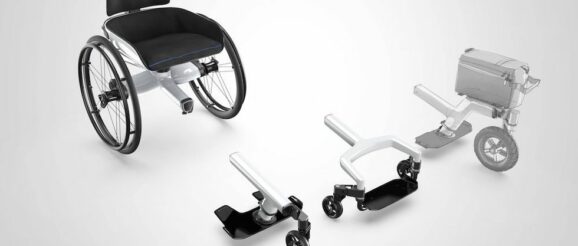How digital manufacturing supported an award-winning wheelchair – Med-Tech Innovation

The next-gen modular wheelchair by German start-up Parafree has won the iF Design Award 2023 in the healthcare category. The wheelchair, intended for both athletic and everyday use saw off competition from approximately 11,000 submissions from 56 nations. It represents the efforts of a team that dedicated over 5,000 hours to its creation.
Parafree is a company in Langefreunde Design Studio, led by Felix Lange. In 2011, he came up with the idea for a modular wheelchair to enhance the mobility of individuals with paraplegia or limited leg functionality. The bulk of the Parafree wheelchair is crafted from carbon composite materials, forming its unique shape and sturdy structure. But it’s the metal parts that really make it tick, making sure the modular design works perfectly.
Engineering a high-quality medical device is no easy feat. While Parafree had a great design at hand, one of the challenges it faced was sourcing high-strength, production-grade parts in smaller quantities for product testing. “Our biggest challenge was finding a flexible manufacturer that could provide us with the parts required to meet this low-volume production plan,” says Lange.
At first, Parafree produced prototyping parts with a local manufacturer, though the design requirements soon exceeded the shop’s available capacity. This augmented costs and, more significantly, caused delays in the design process. Looking for an alternative solution to these manufacturing challenges, Lange and his team decided to test Hubs’ online manufacturing platform.
Hubs’ instant quote builder, design for manufacturability (DFM) guidance, and wide range of capabilities helped accelerate Parafree’s product development cycle. “Hubs’ platform gave us live feedback on the manufacturability and potential costs during the development process. This immediate feedback loop is not attainable when working with traditional manufacturers,” Lange adds.
With the manufacturing side of things taken care of, Lange and his team could now concentrate on what they do best: refining their product and incorporating innovative attachments into the fundamental design. This enabled them to achieve remarkable modularity, adaptable to a broad range of use cases.
Reflecting on the impact of this project, Lange added: “Every young designer dreams of changing the world with a product that improves people’s lives. Hubs has given us reassurance in the way we design our parts, and certainty that we are doing it right.”
